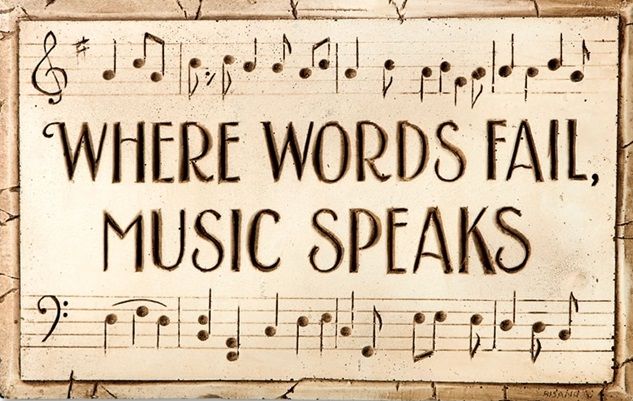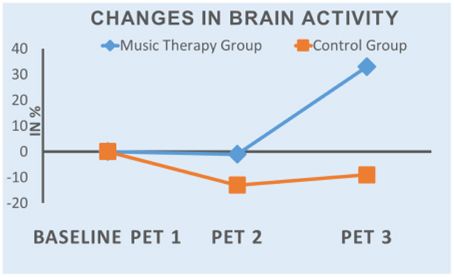Music As A Psychotherapy
Jul 15, 2019 • 166 views

We have all grown up listening to the tale of the Pied Piper. His soothing music had played tricks not only with the minds of the rats he was told to drive away but the children as well.
“Om” is one of the most powerful and important Sanskrit words in Hinduism and chanting the same is a form of meditation. The reverberations produced from the chanting are considered to have mental as well as physical healing properties. We can thus see that the effect of music on our minds has been well documented from a long time.
Music, or simple sound plays an important and constant role in our lives. Everywhere we go, we are surrounded by some form of music. It could be something as simple as the soothing hum of machinery, the twittering of birds every morning or the songs we play in our ears during our daily commute.
Music is often linked to mood. It plays with our emotions, allowing us a wide spectrum of feelings. Music also helps in releasing endorphins or ‘feel good’ hormones which makes us feel happy, relaxed and calm. Music affects the emotional, cognitive, sensory and motor areas of the brain. Since it is evident that music can cause major impacts on our neurological processes, it is also very commonly used in therapy.

There are two types of music therapy used:
1. Receptive
The patient is made to listen to recorded or live music. This generally releases endorphins which helps in calming the nervous system and making the patient more relaxed and happier.
2. Active
This includes production of music either by singing or by playing an instrument. Active therapy is focused more on a form of physiotherapy. Playing instruments can free the joints of patients having muscular or bone disorders and vocal music improves lung functionality and helps to treat breathing problems.
There are a lot of psychological disorders that can be controlled or treated by music therapy:
1. Autism
Autism is a disorder which is characterised by difficulties with social interaction and communication and engagement with repetitive behaviour. Music helps to calm them down and avoid going into sensory overload. As a music student myself, I have seen tremendous changes in the autistic students who came to learn. Their focus and concentration increased, eye-hand coordination increased and they slowly became calmer and gentler in their interactions with others.
2. Dementia
Dementia is a loss of cognitive functions such as memory. In such people, music plays a role in mediating their emotions. It reduces aggression and agitation. It reduces the symptoms, improves coordination with daily tasks. Since it is successful in keeping people calm, it also helps in reducing the risk of heart or brain diseases.(https://www.psychologytoday.com/us/blog/natural-standard/201306/music-therapy-health-and-wellness)
3. Depression
Depression is a mood disorder that involves bouts of excessive sadness and negativity. There is evidence that music can help in treating the symptoms of depression. It increases alertness and responsiveness to antidepressants. Happy music lifts up moods due to release of endorphins. It reduces heart rate, blood pressure and respiratory rate making the person more active.
(https://www.psychologytoday.com/us/blog/natural-standard/201306/music-therapy-health-and-wellness)
4. Infant development
We always see expecting mothers attempting to expose their unborn baby to certain kinds of music in movies as well as in real life. The music the child is exposed to before birth is influential in its post birth habits. Soothing music has been known to result in calmer, more peaceful and less fussy new-borns.
5. Insomnia
Insomnia is difficulty in falling asleep. Soft instrumentals help in significantly improving the sleep quality. It is as effective as chloral hydrate in inducing sleep or sedation.
(https://www.psychologytoday.com/us/blog/natural-standard/201306/music-therapy-health-and-wellness)
6. Unresponsive Wakefulness Syndrome
Damage in several brain regions leads to an inability to react to the environment even though they are completely awake. This is the Unresponsive Wakefulness Syndrome and is a severe neurological impairment. A pilot study was conducted on such patients and it was observed that people undergoing music therapy showed higher brain activity through PET scans as compared to patients without it.

(https://www.frontiersin.org/articles/10.3389/fnins.2015.00291/full)
Music in its own has been regarded as a very superior art form and is now inculcated into science to provide the best non invasive health care to the community. It is a completely harmless form pf psychotherapy and greatly influential in treatment in a lot of neuropsychological disorders. It is however not a sole form of treatment and should be complimentary along with other forms of psychotherapy. Always consult with your therapist before trying any form of new therapy to ensure the most effective treatment suitable for your needs.
